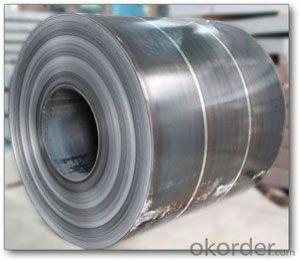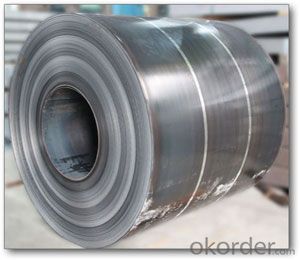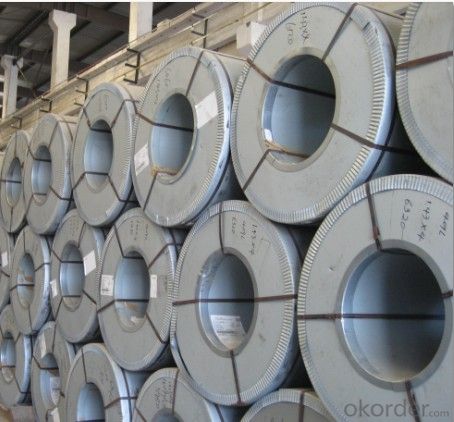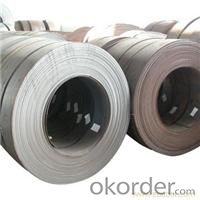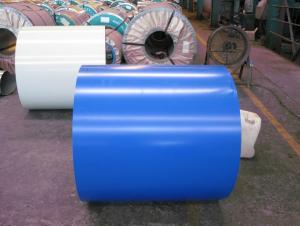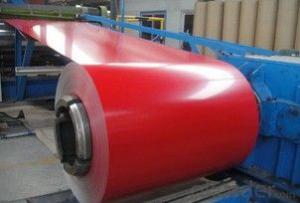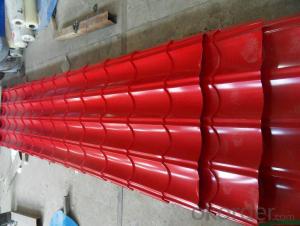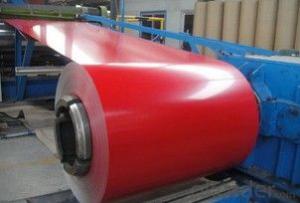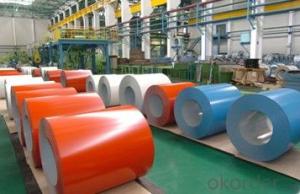BEST HOT-ROLLED STEEL COILS
- Loading Port:
- China Main Port
- Payment Terms:
- TT OR LC
- Min Order Qty:
- -
- Supply Capability:
- -
OKorder Service Pledge
Quality Product, Order Online Tracking, Timely Delivery
OKorder Financial Service
Credit Rating, Credit Services, Credit Purchasing
You Might Also Like
HOT-ROLLED STEEL COIL
Hot rolled low hardness, easy processing, good ductility.
Available specification:
| thickness | width(mm) | length(mm) | coil inside diameter(mm) |
HOT ROLLED STEEL COIL | 1.5-25 | 600-2000 |
| 762 |
HOT ROLLED STEEL STRIP | 1.5-20 | 30-720 |
| 762 |
HOT ROLLED STEEL PLATE | 6-700 | 500-4500 | 4000-18000 |
|
HOT ROLLED STEELSHEET | 1.2-25 | 50-2000 | 0-18000 |
|
we can supply all these inndustrial materials with reasonable price and high quality.
- Q: I asked a question last week about stainless steel and got some great answers. I combed all over the internet to try to figure this one out but could not find anything. What resists bending better: chrome vanadium steel (i.e. a steel commonly used to make tools) or stainless steel 304. My guess would be the chrome vanadium alloy but thats just a guess. Which on resist's bending better and by how much (#'s please :-)). Also, if anyone knows if chrome vanadium steel is cheaper than stainless steel 304 that would be awesome? I can't find a price per pound on chrome vanadium steel anywhere! Please help. Thanks in advance-Josh
- Fill the pot up w/cold water to cover the burned on rice. Bring it up to a boil. Do it again w/some high powered soap in the mix. This time let the water sit in the pan until its luke warm, dump it out and scrub it up w/the plastic scouring pad. You should be all set.
- Q: What are the different finishes available for steel coils?
- There are several different finishes available for steel coils, including hot rolled, cold rolled, galvanized, and coated finishes.
- Q: What are the different types of steel coil slitting lines?
- There are several different types of steel coil slitting lines, including rotary shear slitting lines, loop slitting lines, and drag tension slitting lines.
- Q: Do any tour players use steel shafted woods? And are there any real advantages to having steel shafted woods? I have only played with one person to use steel shafted woods, he tells me thats because he cant hit it straight with graphite, however he is a very short hitter.
- I'd be very surprised if there are any tour players still using steel shafts on their woods (I did actually see Tiger with a steel shaft on a driver during a clinic in 2002). Top end graphite shafts have gotten so much better there's just no reason for pros not to use them anymore. That being said, I use a 45 True Temper stiff steel shaft in my driver (Cobra X-speed, 9.5*). Graphite is longer than steel, but the distance I've lost is minimal (maybe 10 yards and I still put it out there 250+ consistently). The extra weight has actually helped me stay in control which has improved my overall driving considerably, and the very low torque in a steel shaft has paid off huge in accuracy. You're paying minimum $60 (or more) for a graphite shaft with a similar torque rating to any steel shaft. I hit easily twice as many fairways since the switch. I've even switched out my other fairway woods too, the feel and control are so much nicer. I've considered going with a 46 on the driver to try to regain some of the distance, and at $7 per shaft I can actually just go do that whenever I want. Don't get me wrong, if I were playing for money or flirting with par I'd invest in good quality graphite stuff no question, but it doesn't make sense to me right now. I'd recommend to anyone looking for more consistency out of their woods to take $20 to your golf shop and try it out. It's a lot cheaper than the alternatives.
- Q: How are steel coils used in the production of agricultural equipment?
- Steel coils are used in the production of agricultural equipment as they are often shaped and formed into various components such as frames, chassis, and structural parts. These coils provide strength, durability, and stability to the equipment, making it capable of withstanding the demanding conditions and heavy workloads typically associated with agricultural tasks.
- Q: What are the different surface treatments available for steel coils?
- There are various surface treatments available for steel coils, including galvanizing, painting, powder coating, and zinc coating. These treatments help protect the steel from corrosion and improve its durability and appearance.
- Q: i want to know if i should buy a set of acrylic tapers or steel. they r close in cost so it's not a money factor i want to know which work better and if there is a downside to either. thanks!
- Steel is better. Acrylic is porous so isn't as suitable for piercing jewellery as steel. Steel can also slide through easier for some people, acrylic isn't quite as smooth. For tapers it doesn't make a huge deal of difference as they're only passing through your ear briefly, not being worn as jewellery, but if they're close in cost anyway then go for the steel. And the plugs you insert after putting the taper through should always be steel, titanium or glass until your stretch has healed.
- Q: I have a Victorinox Pioneer, and I recently filed a little metal off the blade for some jimping. Is the already stainless steel blade still stainless?
- It's solid stainless steel, stainless steel is just an alloy. You might have rubbed off some of the finish of the blade. Just polish it up if it's bothering you.
- Q: How are steel coils tested for compliance with industry standards?
- Steel coils are tested for compliance with industry standards through a series of rigorous quality control measures. These tests are conducted to ensure that the coils meet the necessary specifications and are suitable for use in various applications. One of the primary tests performed on steel coils is the dimensional inspection. This involves measuring the thickness, width, and length of the coils to ensure they meet the specified tolerances. Any deviations from the required dimensions can indicate a manufacturing defect or potential issues during fabrication. Another critical test is the visual inspection, where trained inspectors carefully examine the coils for any surface defects such as scratches, dents, or cracks. These defects can affect the performance and durability of the steel coils, making it essential to identify and rectify them before they are supplied to customers. Furthermore, mechanical properties testing is conducted to assess the strength, elasticity, and toughness of the steel coils. This includes tests like tensile strength, yield strength, and elongation measurements. These tests help determine the suitability of the coils for specific applications and ensure they meet the required performance standards. Additionally, chemical composition analysis is performed to verify the elemental composition of the steel coils. This analysis is crucial as it ensures that the steel meets the required chemical requirements, including the presence of specific alloying elements. Deviations in composition can impact the overall quality and performance of the coils. Corrosion resistance testing is also important, especially for coils used in environments with high humidity or exposure to corrosive substances. Coils are subjected to salt spray or humidity chambers to simulate real-world conditions and evaluate their resistance to corrosion. Lastly, various non-destructive testing techniques, such as ultrasonic testing and magnetic particle inspection, are used to detect internal defects or discontinuities in the steel coils. These tests help identify any hidden flaws that may compromise the structural integrity of the coils. Overall, steel coils undergo a comprehensive range of tests to ensure compliance with industry standards. By conducting these tests, manufacturers can guarantee that the coils meet the required specifications, providing customers with high-quality products that meet their specific needs.
- Q: Why are steel saucepans and tea kettles covered with copper on the outside and the bottom? what r the goals of having high-quality pans that are thick and tea kettles that are thin walled?
- Yep I agree with Scamper. Copper pot would be toxic so lined with tin or stainless steel.
Send your message to us
BEST HOT-ROLLED STEEL COILS
- Loading Port:
- China Main Port
- Payment Terms:
- TT OR LC
- Min Order Qty:
- -
- Supply Capability:
- -
OKorder Service Pledge
Quality Product, Order Online Tracking, Timely Delivery
OKorder Financial Service
Credit Rating, Credit Services, Credit Purchasing
Similar products
Hot products
Hot Searches
Related keywords
